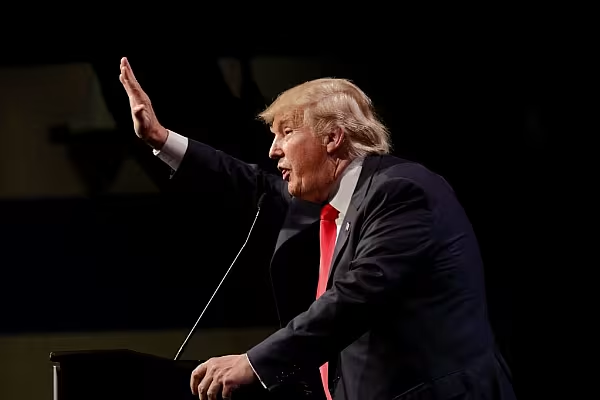What to expect after a year of frenetic, if not record-breaking, M&A?
The roughly $3 trillion in global takeovers announced in 2016 was near the top of the all-time charts, but fell short of last year's record in large part because there were fewer megasized, $10 billion-plus acquisitions.
Bankers still stayed plenty busy: It was the second-largest year for U.S. deal volume in the last two decades, while the number of large takeovers done globally still well surpassed the 20-year average. And there's reason to be optimistic about 2017.
Near the top of President-elect Donald Trump's agenda is a plan to encourage companies to bring home cash they've stockpiled overseas and out of reach from the Internal Revenue Service. Cisco Systems Inc.'s CEO Chuck Robbins is in control of one of the biggest foreign cash hoards at about $60 billion and he'd like to spend that on "buybacks, dividends and M&A activities." That's not an encouraging response for anyone hoping some extra cash would inspire a U.S. manufacturing renaissance, but it's good news for Wall Street -- that's the idea, right Mr. Trump?
Apart from available funds, the other big driver of M&A is CEO confidence, and few things make chief executives more confident than rising stocks. The Dow Jones Industrial Average is flirting with 20,000 for the first time, reflecting confidence that Trump will usher in a pro-growth, business-friendly agenda (despite the fact that he seems to have taken a liking to micromanaging companies via Twitter).
And CEOs won't just be empowered to pursue your run-of-the-mill M&A. Trump's nominees thus far for positions with sway over antitrust matters signal a lighter touch than we saw under President Barack Obama, whose term included the successful barring of mergers between Staples Inc. and Office Depot Inc. and Halliburton Co. and Baker Hughes Inc.
But rising stocks are a double-edged sword that's also set to make M&A in some industries more expensive.
Take industrial companies. You'd be hard-pressed to find a CEO in the growth-starved sector that hasn't voiced a desire for M&A. Freeing up overseas cash will give them extra ammunition and could set off a flurry of dealmaking. Many of the companies they would acquire with that cash, however, have seen their stocks rise as investors wager on a big sales boon from Trump's proposed infrastructure and defense investments.
Things start to get expensive when you're paying a premium to a stock price that's built in much of the potential upside of Trump, but none of the possible downside -- such as his protectionist policies or the fact that he's about as predictable as the roster of Trump Tower visitors (hello, Kanye).
This phenomenon -- also seen in sectors that will benefit from more relaxed regulation such as banking and TV stations -- could encourage more deals with a stock-based component as companies seek to take advantage of their own rising currencies. That would reverse a clear preference for cash in 2016.
Low interest rates have lent a helping hand to acquirers with expensive tastes by making practically any deal look accretive. Borrowing costs are still relatively low, but they're upward bound, with the Federal Reserve raising benchmark rates in December and calling for a steeper path of increases next year. The strain of the debt-fueled deal boom is already showing. As Gadfly's Tara Lachapelle has noted, goodwill is already reaching worrisome levels.
The party isn't over, but it's getting long in the tooth.
News by Bloomberg, edited by ESM. To subscribe to ESM: The European Supermarket Magazine, click here.














